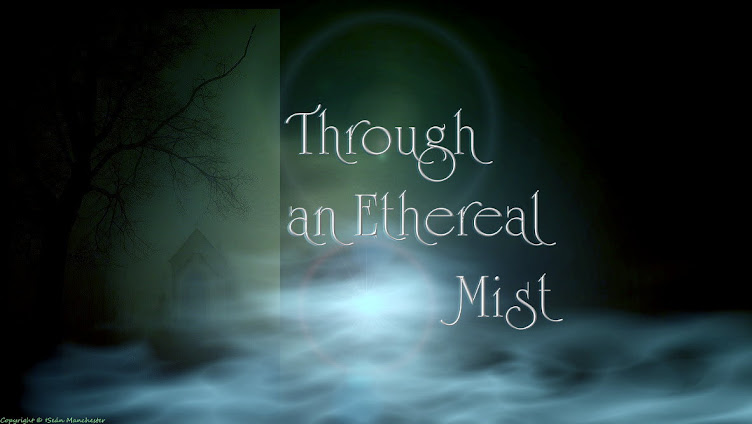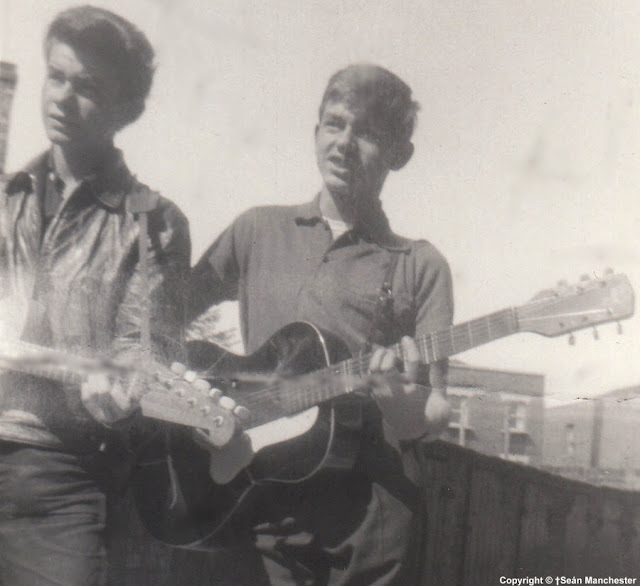Wednesday 13 June 2018
Cousin Keith — † Requiescat In Pace †
My first real pal whom I stayed in touch with even after relocating to London. The photograph of him on his Triumph motorbike in 1961 is the last I have of him before he died of a blood disorder.
Tuesday 12 June 2018
Yoss Baker
Yoss Baker, a school chum and member of the St Luke's boy's church group I attended, played lead guitar at my stage debut at a large Saturday night dance held in a hall in North London when I was fifteen. My first ever number on stage as a saxophonist was Rudy's Rock. It brought the house down.
Steve Howe (later a lead guitarist in his own right) was in the audience, and greatly impressed by what he saw. He would mimic some of the mannerisms of Yoss when performing as a world renowned musician in later years. Being a couple of years younger than Yoss and I, he was still learning chords on an inexpensive acoustic guitar, but went on to acquire a solid electric guitar from me, which I used as a second instrument. Eventually keyboards became my second instrument. Musicians back then had to be able to play at least two instruments. I played sax and three others.
You can listen to the original Rudy's Rock by clicking on any of the images.
Monday 11 June 2018
Stephen Howe
Stephen Howe and I had been really close friends for a number of years, but that would eventually evolve and peter out as our paths took us in directions that were literally worlds apart. Even our mutual admiration of the same music did not prevent this inevitability. He was my neighbour in Islington, and we had some truly great times as best friends and participants in the musical explosion of the period. Yet his destiny awaited with a group of musicians not yet formed called Yes. And I ... well, that's another story for another day, because I had joined a repertory company, and had also been accepted as a member of the Northern Shakespeare Players. I performed most nights in the theatre, and gave matinees (on occasion at the George Inn Courtyard, Southwark, during a Shakespeare festival in May). I was also being noticed as an emerging saxophonist and photographer.
But I digress. In those early years of the 1960s, an informal group gathered to investigate various aspects of the supernatural. It included Dennis “Bickie” Crawford whose interest, as was mine, the works of Montague Summers. Stephen became increasingly nervous with each enterprise we undertook, until a foray into the Marlborough Theatre, which stood semi-derelict as demolition grew close, ended his association with the group’s activities. A preliminary investigation had been carried out some days earlier, but on that Sunday afternoon when Stephen accompanied us, there was a different atmosphere in the lavishly decorated baroque theatre. We made a thorough inspection from the top dress circle, through the remaining two dress circles, down to the stage itself. There were twice as many boxes either side. Then we returned to the lower dress circle and gained a good vantage point in the dark to view the box where an unfortunate person was believed to have plunged to their death in a former century. Dennis thought he saw something move near the stage. Michael, another friend, thought it was probably a pigeon that had somehow managed to fly in and was now trapped. Then we all saw the white mass, like a mist, creeping along in front of the safety curtain. It seemed to increase in size. I felt the hairs on the back of my neck literally rise. We all did. Now frightened, we ran down the stairs to escape, but the place where we had entered the boarded-up building was eluding rediscovery. Hence we found ourselves wandering the stairways, desperately looking for an exit ... any exit. In our panic we had forgotten about Stephen.
By this time he had completely disappeared. He had seen something ghost-like reflected in one of the full-length mirrors that adorned each of the stairway landings, and it raised the hair on his head, causing him to break out in a cold sweat. So terrifying was it that he took off in a blind panic, found an exit to a cul-de-sac where the only escape from the ground floor was a twenty-foot brick wall, and somehow managed to scale it by pressing against the theatre's exterior and this wall that was approximately three or four feet distance with a narrow alley betwixt. The experience was frightening enough to prevent him from partaking in any future investigations. It was way after nightfall before the remainder of us found our way out, by which time the spectral shape had materialised, moved forward into the dark seating area of the theatre, and vanished. It was never discovered what the pale mist-like shape which manifested in the area of the stage might have been, but when the theatre was shortly afterwards demolished, and replaced with a modern office block, called Marlborough House, cleaners who worked at night in the building reported eerie occurrences, eg a door was found locked on a floor well above ground level with the key in the lock on the inside of its empty room; items moved without any explanation; and, most terrifying perhaps, a spectre was sited by more than one employee of the cleaning agency. It apparently moved through office furniture and vanished through a wall. A number of the cleaning staff would not work in Marlborough House after that experience.
I spoke to Stephen via telephone in the 1970s. He was then at his Hampstead home. Our conversation was convivial until he asked what I was doing. "Are you still investigating unearthly phenomena?" he enquired. I indicated vaguely that I was. He continued: "I saw you in a couple of magazines." There was a slight and slightly awkward pause. "I still have an interest in that field," I eventually confessed. His was quick to reply: "I guessed you might have." We ended our conversation pleasantly enough, but I sensed we would never speak again. He seemed very afraid still of things deemed supernatural.
Stephen has been invited to my private occasions, birthday and Christmas parties etc, but remains ever distant. I have spoken to his son, Dylan, who is a jazz drummer. He said with a certain degree of enthusiasm: "Dad will be so pleased to hear from you." Yet inwardly I knew that was not the case.
Three of the group who entered the Marlborough Theatre on that fateful evening can be seen below. They are (from left to right) Roy Sandeman, Michael Welch, Dennis Crawford and Stephen Howe.
I cannot honestly say I was ever touched by the music of Yes, or any other "progressive rock" group. I understood where Stephen was coming from, but I empathised more with where he had been than where he was heading with his music. His Wikipedia entry is full of error and inaccuracy, as are so many, not least where I have been mentioned in other people's articles and submissions. It even has him attending the wrong school. It is not mentioned anywhere, not even on Stephen's own website, that he attended the local Saturday night dance to watch me blow my saxophone to some wild original rock 'n' roll. More importantly perhaps, he was initially influenced stylistically by the lead guitarist in the band, a character by the name of Yoss, who was very idiosyncratic with his mannerisms, movements and affectations. I saw some of those traits emerge in Stephen when he came to perform in public in the following decade. He applied to join a later group in which Yoss played, and was turned down. Yoss nevertheless thought him to be uniquely talented. Doubtless his traits evolved along the way and he grew into his own on stage personality. Stephen's first solid guitar was one I had owned. That and other interesting facts have been airbrushed out of history.
When I lost touch with Stephen during his Syndicats days it was due to our paths having taken completely different directions. I would occasionally bump into him when he visited the old haunts in Islington to visit his parents. It was quite apparent, indeed undeniable, at the time that he was imbibing certain "mind-expanding" substances. His personality had shifted accordingly, as one might expect, and this could have had more to do with his musical direction than anything else.
Stephen never struck me as having a particular "spiritual focus" throughout the years I knew him. Nor did his brothers, John and Phillip, or sister, Stella. That, of course, could have changed.
The concept of striving toward elevated forms of expression does speak to me, and we invariably express using something deep within ourselves, but it surprises me a little that Stephen did not go more down the jazz or classical route. He was certainly into jazz when I knew him. Neither did aspects of the avant garde in both jazz and classical music alienate him, but, of course, these would not prove lucrative. I am not of the opinion, as are some, that music should not concern itself with spiritual matters, but it becomes a struggle to visualise this easily when the medium is pop music.
The images below are how I remember Stephen best form the Fifties and Sixties. He is, however, exponentially unrecognisable to me in subsequently taken photographs. He was very introverted and shy in the years I knew him, and he found his fulfilment in music. If that also includes a spiritual focus, I wish him well and trust he has found contentment. I remember him as a nice chap.
Subscribe to:
Posts (Atom)




















































